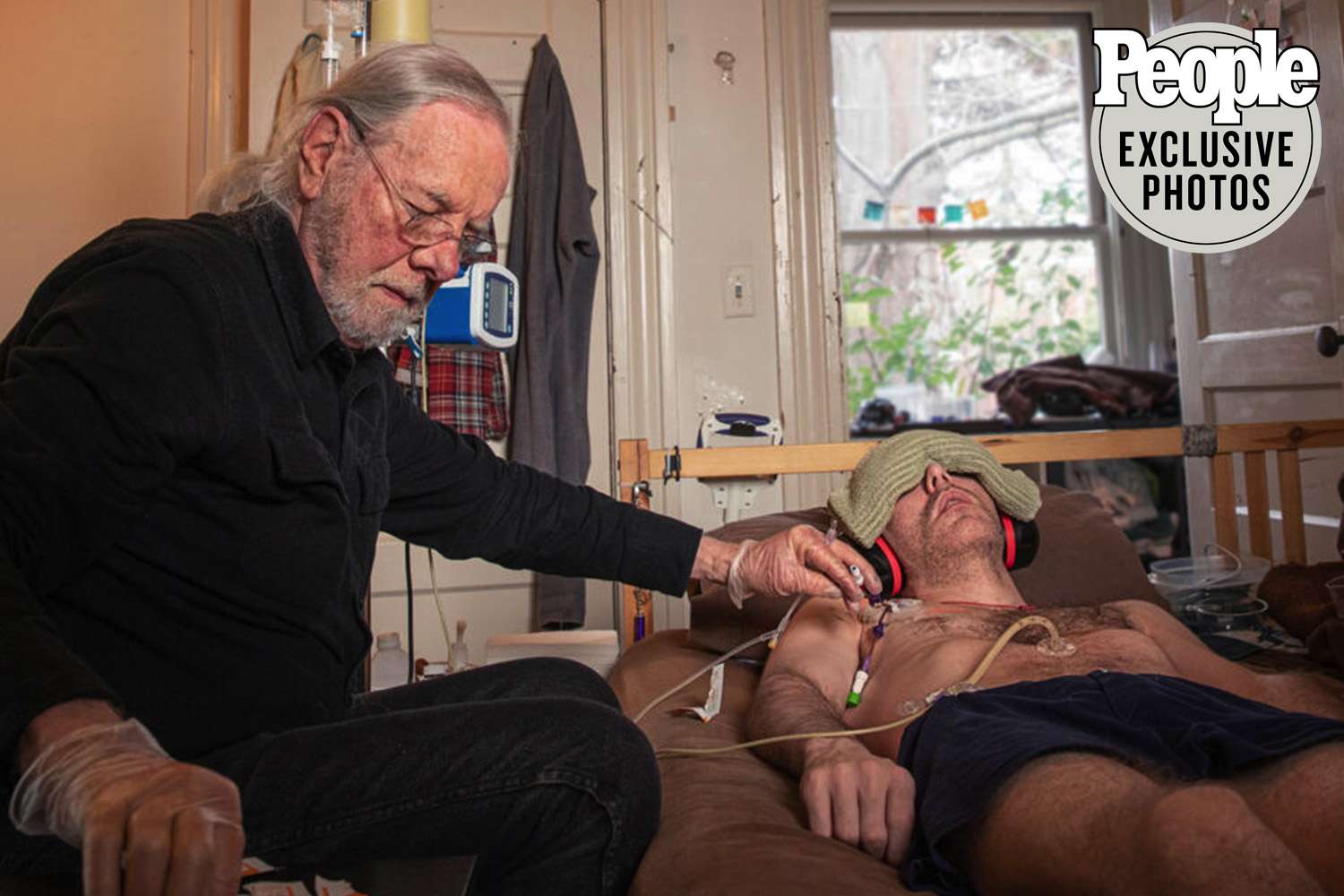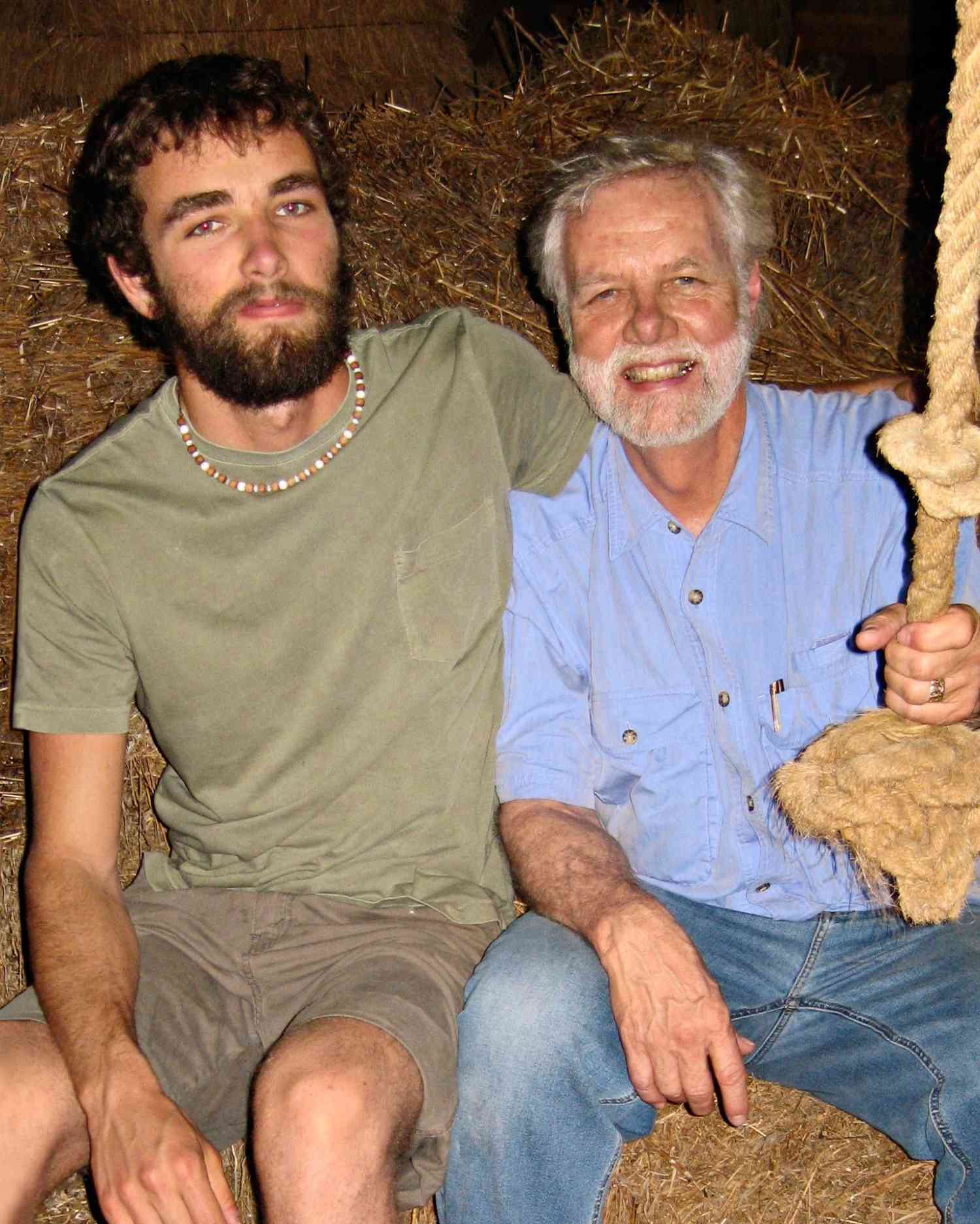Scientist Ron Davis Is Fighting to Cure His Son's Chronic Fatigue: 'It's Like a Living Death'


Thirty minutes into a Zoom interview about their years-long battle to keep their son Whitney Dafoe alive, Janet Dafoe shoots her husband Ron Davis an anxious glance.
Whitney, 37, suffers from a severe case of myalgic encephalomyelitis/chronic fatigue syndrome (ME/CFS) — an incurable disease that can leave its victims in a state of crippling fatigue and exhaustion.
It's been 12 hours since Whitney, who is bedridden and dependent on a feeding tube, last rang the tiny bell he uses to summon his parents when he needs something — and Janet, 71, can't help but worry.
"Sometimes when that happens, I get that feeling in the pit of my stomach that the next time I go in there, he's going to be dead," she tells PEOPLE.
She excuses herself for a moment to make sure Whitney is all right, while Ron, 79, a professor of biochemistry and genetics at Stanford University, explains the illness that has upended all of their lives.
"It's such a complicated disease," he says quietly."A few patients get over it, but very, very few."
But Ron, whose gene mapping techniques revolutionized the field of modern biology and were used in the Human Genome Project, is determined to defeat this.
"This is probably more complicated than cancer," he says. "We don't know what's exactly wrong in those who have this disease, but I'm optimistic we can come up with a strategy to solve it."
The mysterious disease, which is believed to affect as many as 2.5 million Americans, is characterized by debilitating exhaustion, cognitive dysfunction and other symptoms.

According to the CDC, ME/CFS is marked by extreme fatigue that "is not improved by rest" and worsens after any activity, either physical or mental, sometimes leaving those with it confined to bed and unable to perform everyday activities like holding down a job or going to school.
There is no test to diagnose the disease but it is most common in young- to middle-aged adults, according to the Mayo Clinic.
"It's way beyond just feeling tired," says Whitney, who summoned the strength to text his responses to PEOPLE's questions in an effort to raise awarness about his illness.
"It's like a living death. What my father is doing gives me so much hope. He's a brilliant problem-solver and maybe the best person alive to figure this illness out."
For more on Ron's battle to help his son survive, pick up the latest issue of PEOPLE — on newsstands Friday.
To that end, Ron — who is the director of Stanford's Genome Technology Center — has assembled some of the world's greatest scientists, including several Nobel laureates, to help with his efforts.
"Ron is a genius," says the Nobel Prize-winning biochemist Dr. Paul Berg, a professor emeritus at Stanford, who serves on the advisory board of Davis's Open Medicine Foundation.
"He's one of the great figures in molecular genetics — and this is now his main obsession."
Says Ron, who tells the story of his family's ongoing fight to keep Whitney alive in a new book, The Puzzle Solver: "I don't care who solves this. I just know that it can be solved using good reasoning and good experiments. There's something broken here and I know we can fix it."





Source: Read Full Article